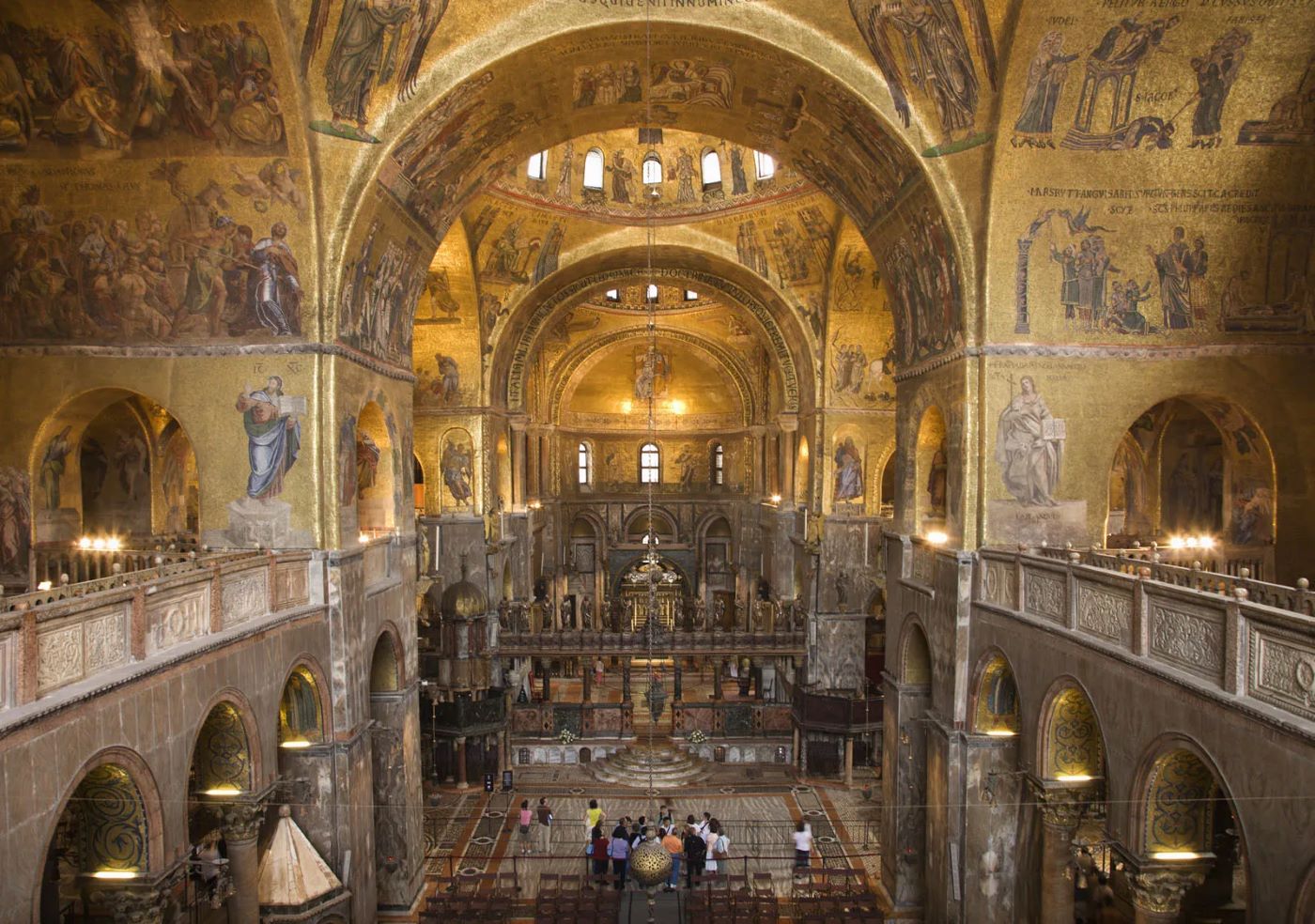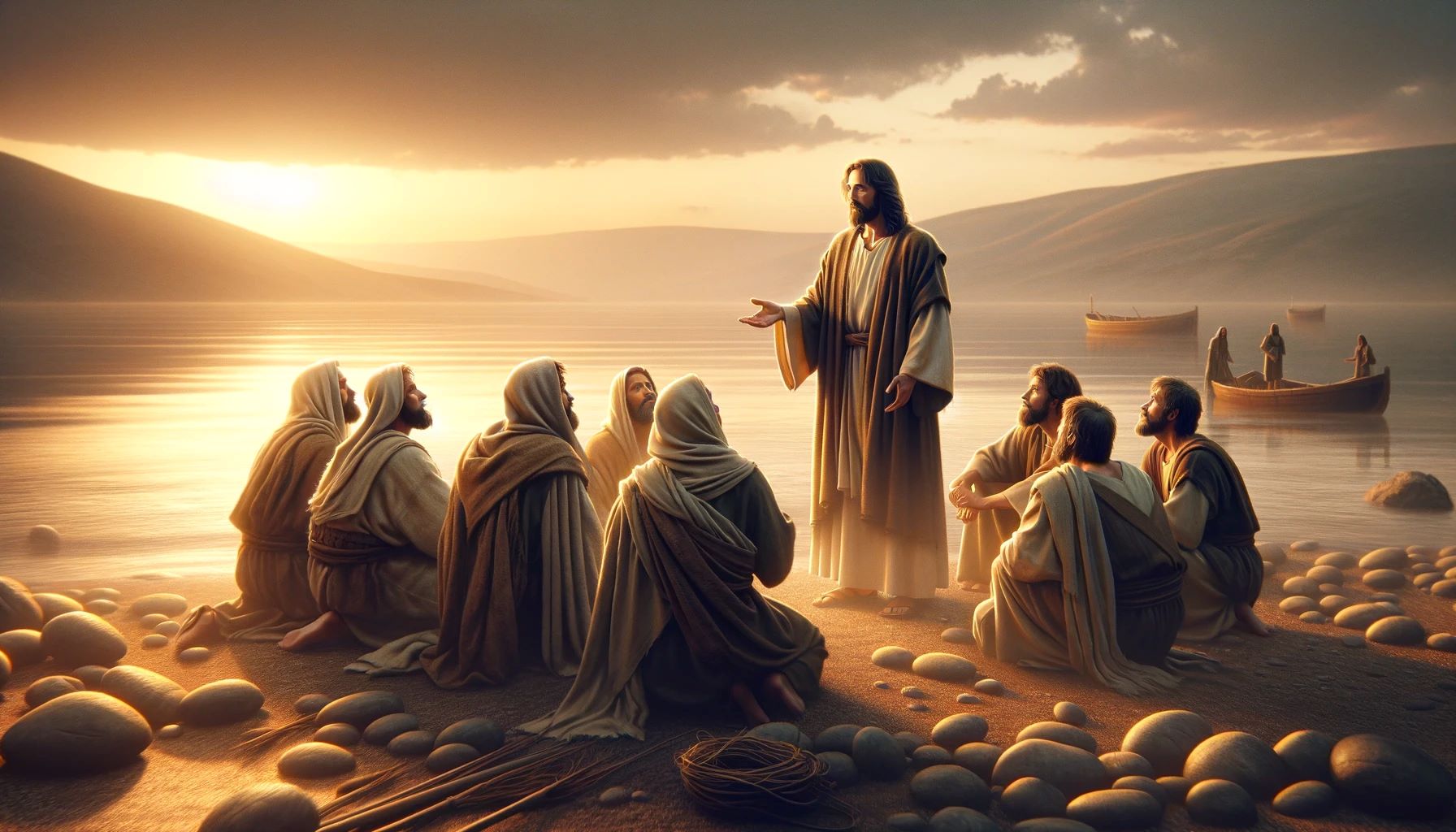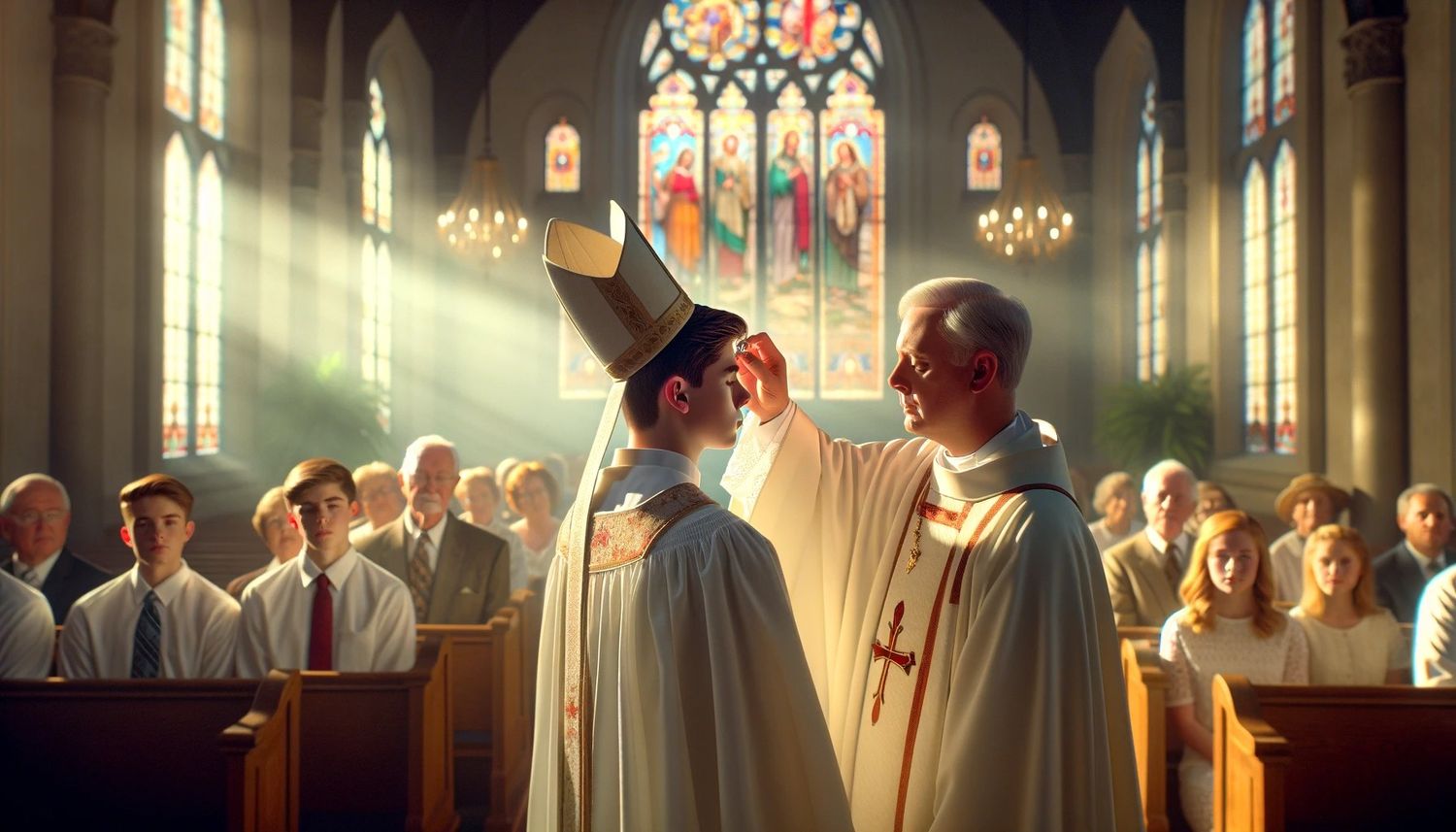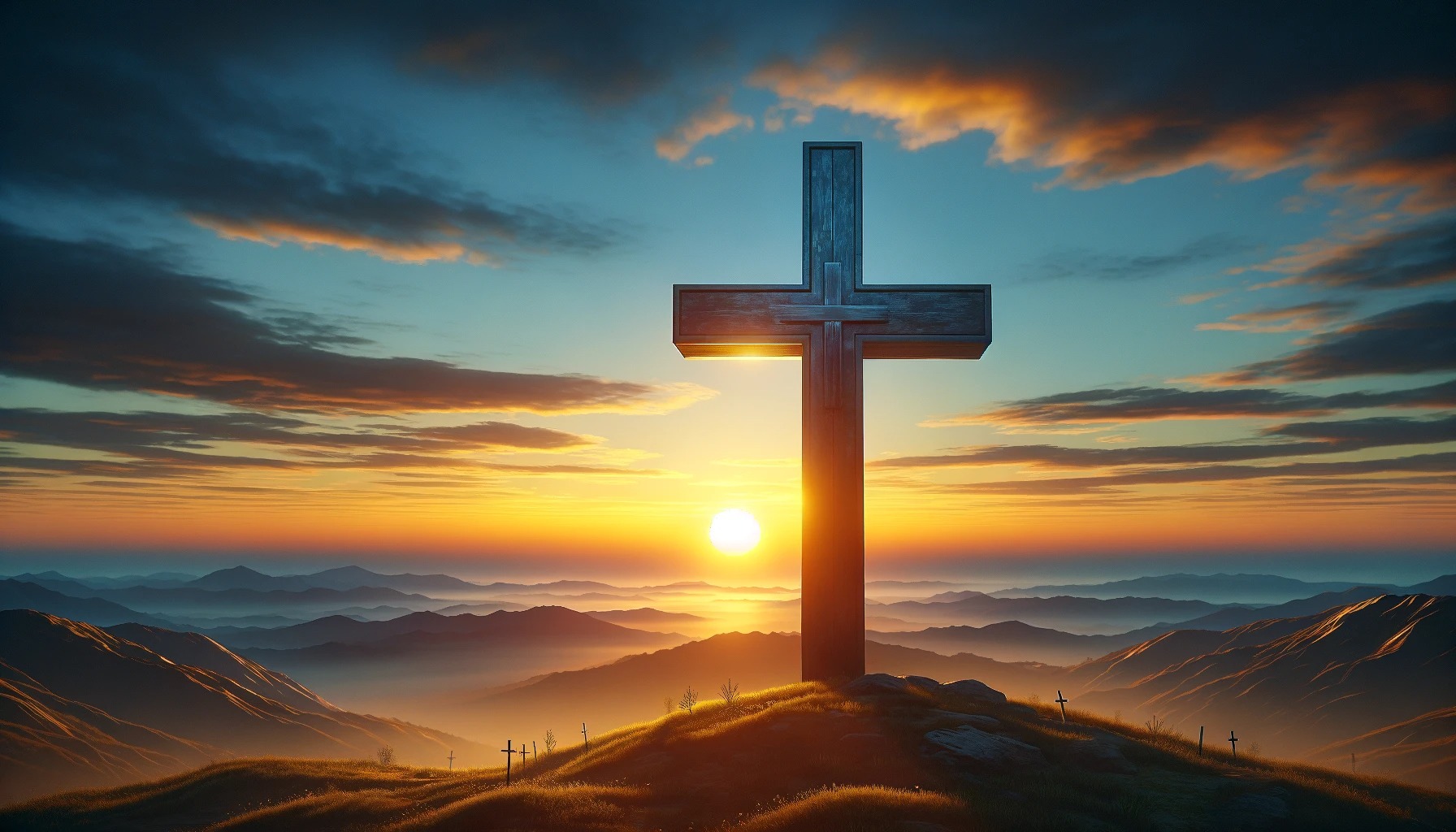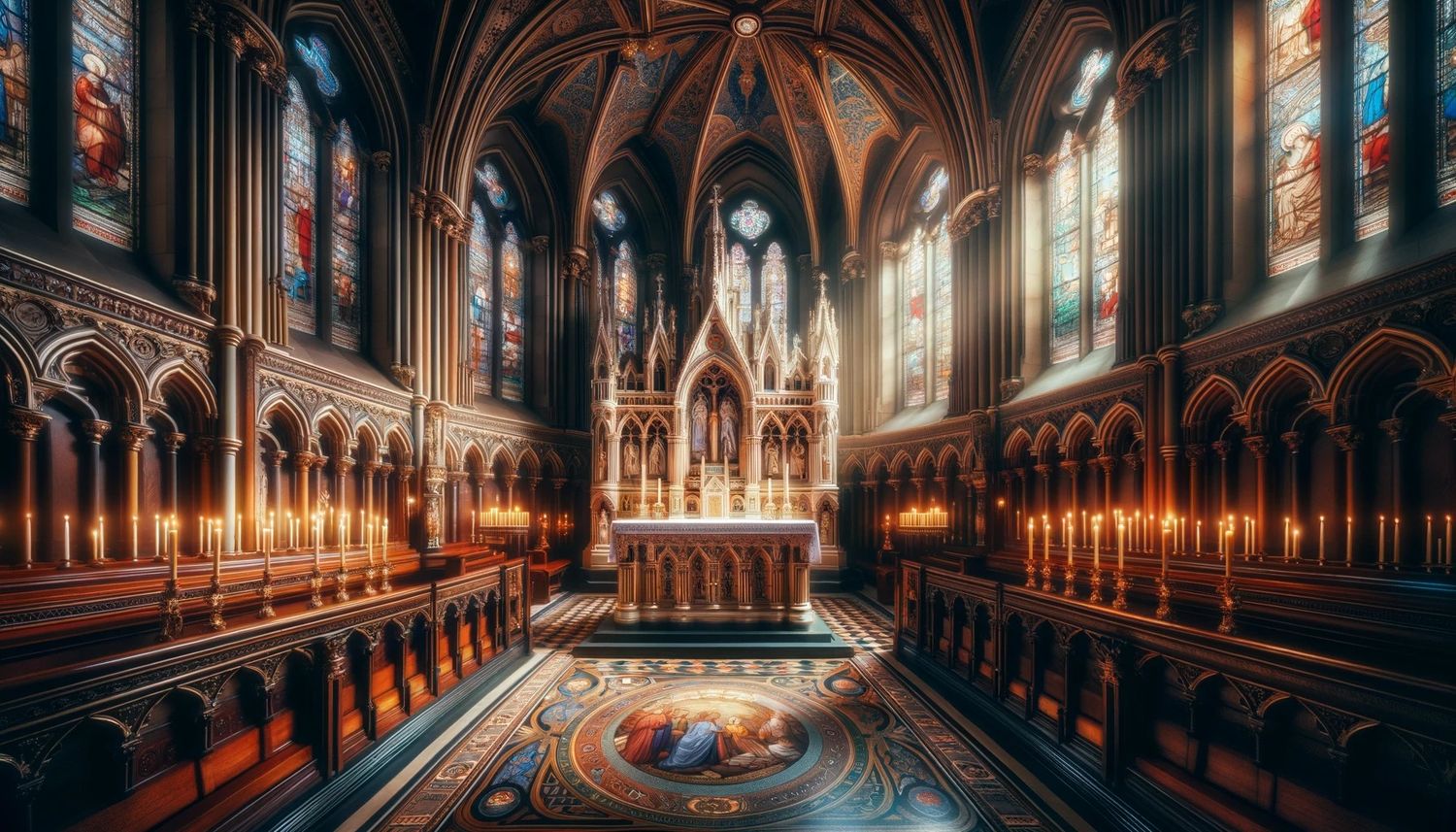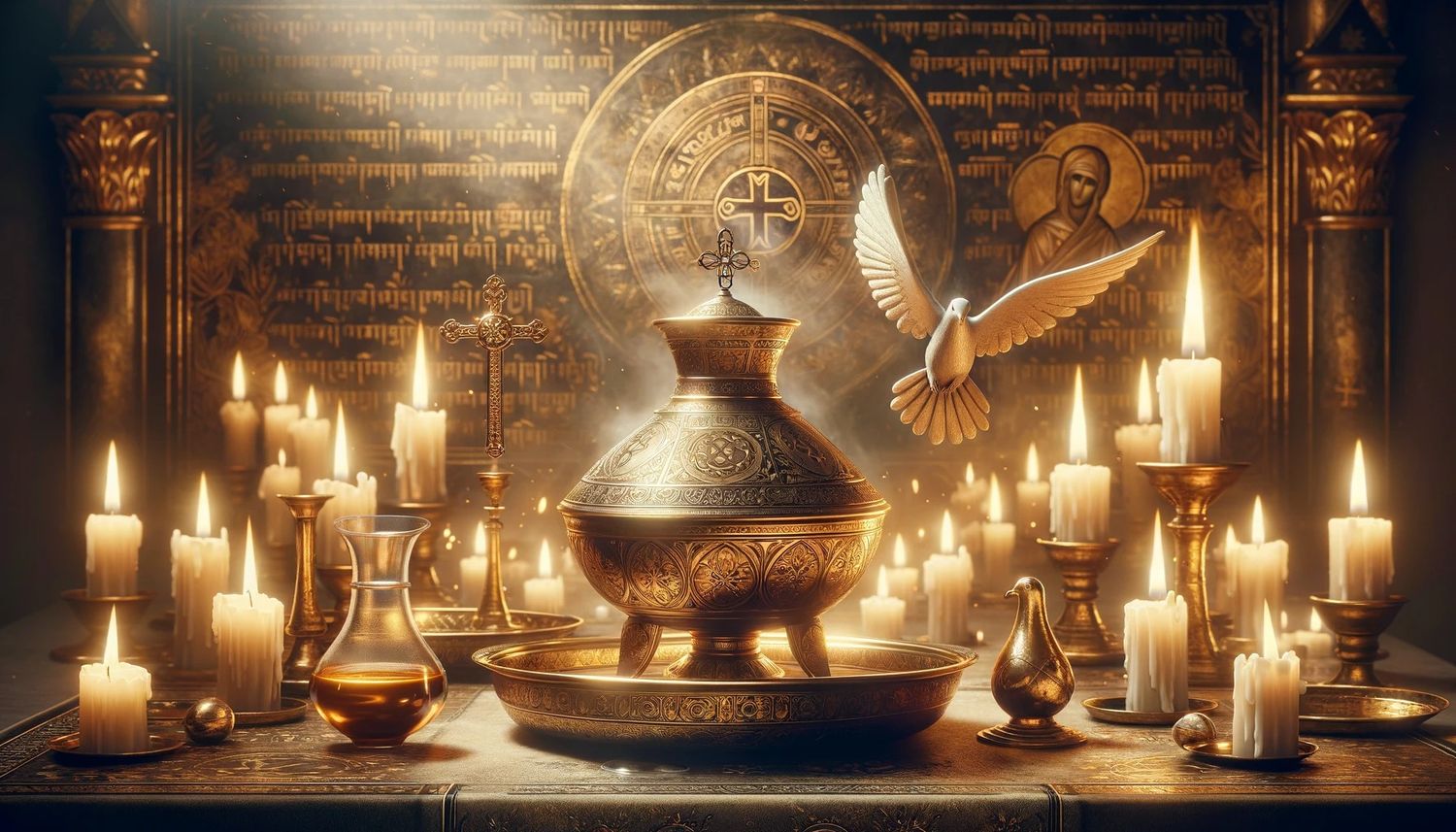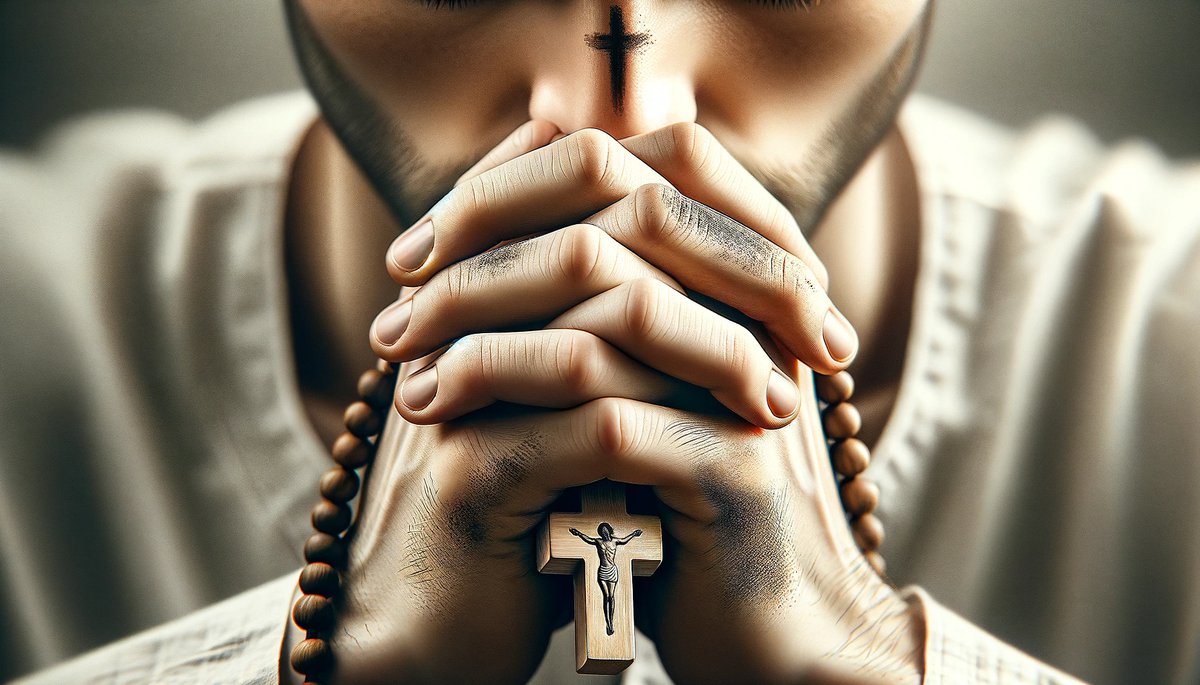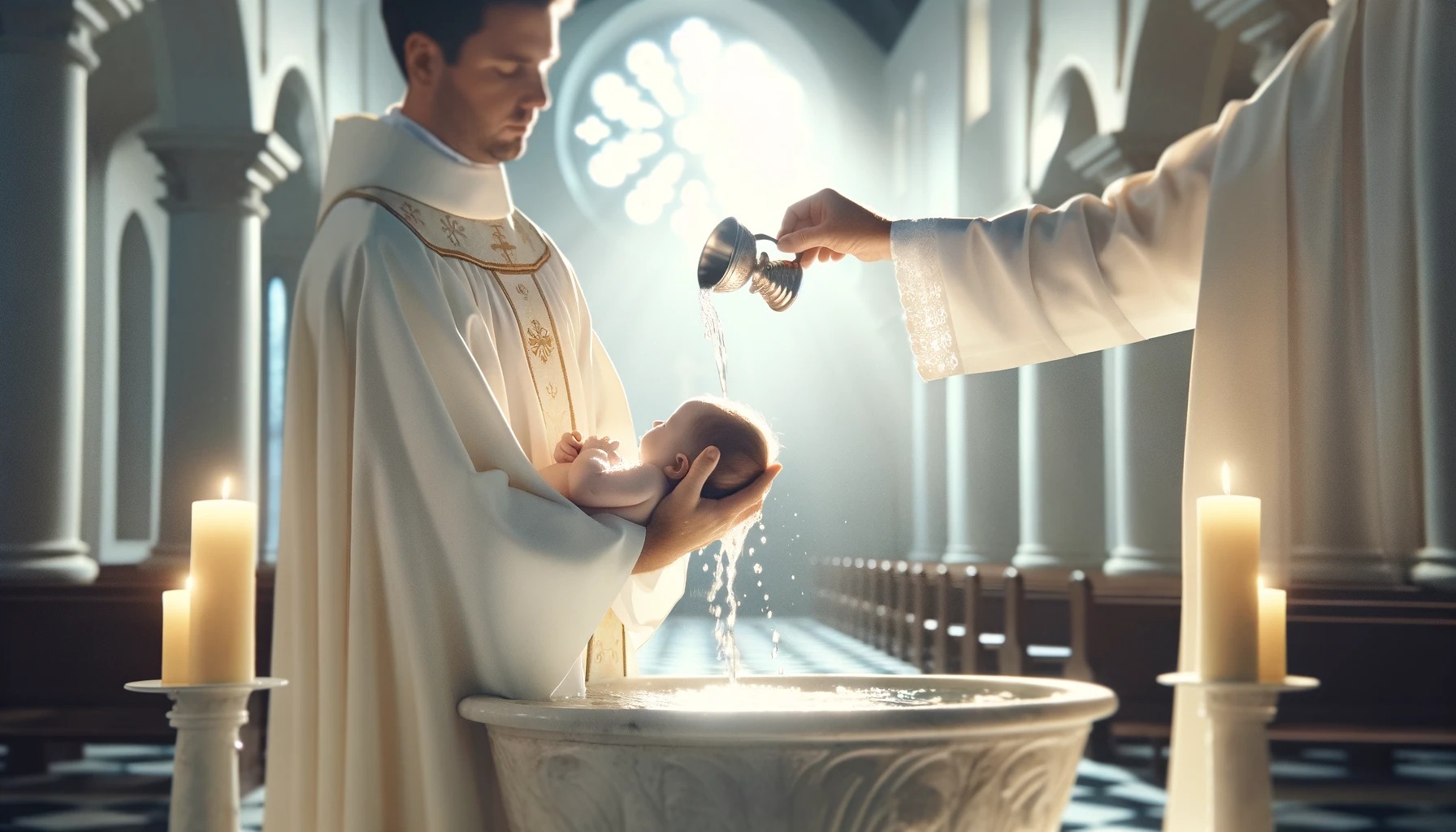Home>Theology and Spirituality>What Is The Meaning Of Catholicism
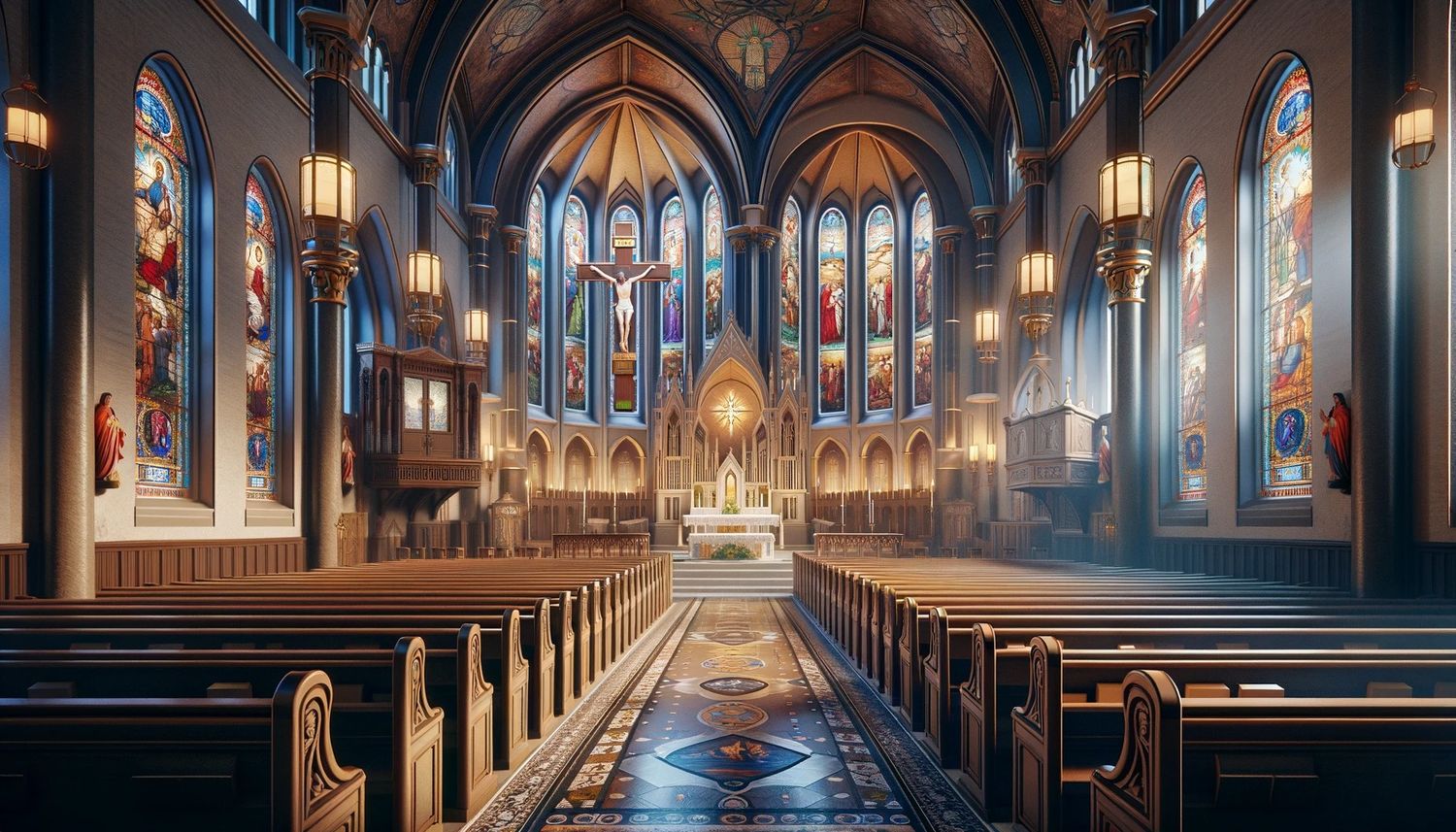

Theology and Spirituality
What Is The Meaning Of Catholicism
Published: February 18, 2024
Jason DeRose, Managing Editor at Christian.net, uses his expertise in religion and journalism to deepen understanding of faith's societal impacts. His editorial leadership, coupled with a strong academic background, enriches the platform’s diverse content, earning him recognition in both journalism and religious circles.
Discover the essence of Catholicism and its significance in theology and spirituality. Explore the meaning and depth of this faith tradition.
(Many of the links in this article redirect to a specific reviewed product. Your purchase of these products through affiliate links helps to generate commission for Christian.net, at no extra cost. Learn more)
Table of Contents
Introduction
Catholicism, one of the oldest and most widespread Christian traditions, has played a significant role in shaping the course of human history and spirituality. With its rich tapestry of beliefs, traditions, and practices, Catholicism has influenced art, culture, and social structures for centuries. Understanding the essence of Catholicism involves delving into its history, core beliefs, and the impact it has had on individuals and societies worldwide.
From the grandeur of the Vatican to the humble parish churches in remote villages, Catholicism encompasses a diverse array of expressions and experiences. It is a faith that has endured through triumphs and tribulations, adapting to the ever-changing landscape of the world while holding steadfast to its foundational principles.
In this exploration of Catholicism, we will embark on a journey through time and space, uncovering the intricacies of its doctrines, the significance of its rituals, and the profound influence it continues to exert on global affairs. Whether you are a devout Catholic seeking a deeper understanding of your faith, a curious observer intrigued by the allure of Catholicism, or a scholar of religious studies, this exploration aims to provide insight into the multifaceted nature of Catholicism.
As we navigate the historical, theological, and sociocultural dimensions of Catholicism, we will encounter the lives of saints, the wisdom of theologians, the beauty of sacred art and architecture, and the enduring impact of Catholic social teachings. Through this journey, we will gain a deeper appreciation for the complexities and nuances of Catholicism, transcending mere academic study to embrace the spiritual and human dimensions that define this ancient tradition.
Join me as we embark on a quest to unravel the profound meaning of Catholicism, a journey that will lead us to the heart of a faith that has shaped the lives of countless individuals and continues to resonate in the collective consciousness of humanity.
Read more: What Does Mass Mean In Catholicism
History of Catholicism
The history of Catholicism is a tapestry woven with the threads of ancient traditions, theological controversies, and the enduring influence of key figures. Its origins can be traced back to the life and teachings of Jesus Christ, whose ministry in the 1st century laid the foundation for the Christian faith. The term "Catholic" itself stems from the Greek word "katholikos," meaning "universal," reflecting the inclusive nature of the early Christian community.
The early centuries of Christianity were marked by persecution and martyrdom, yet the faith continued to spread across the Roman Empire. As the Church grew, it grappled with theological questions and doctrinal disputes, leading to the convening of ecumenical councils to clarify matters of faith and establish orthodox beliefs. One of the most pivotal moments in the history of Catholicism was the Council of Nicaea in 325 AD, which produced the Nicene Creed, a statement of faith that remains central to Catholic liturgy.
The ascendancy of Christianity as the official religion of the Roman Empire under Emperor Constantine ushered in a new era for the Church. The authority of the Bishop of Rome, known as the Pope, began to solidify, and the papacy emerged as a unifying force within Christendom. The city of Rome, with its rich heritage and strategic significance, became the seat of the papacy, and the Pope assumed a central role in guiding the Church and shaping its doctrine.
The medieval period witnessed the flourishing of monasticism, the construction of magnificent cathedrals, and the rise of scholastic theology, exemplified by luminaries such as St. Thomas Aquinas. However, the unity of the Church was tested by the Great Schism of 1054, which led to the division between the Western (Catholic) and Eastern (Orthodox) branches of Christianity.
The Renaissance and the Age of Exploration brought both cultural renewal and global expansion to Catholicism. Missionaries ventured to distant lands, spreading the faith to the Americas, Africa, and Asia, while the Church patronized artists and scholars, leaving an indelible mark on the world of art, literature, and philosophy.
The Reformation of the 16th century sparked a seismic shift within Western Christianity, as reformers such as Martin Luther and John Calvin challenged the authority of the Catholic Church and precipitated the splintering of Christendom into various Protestant denominations. The Council of Trent, convened in response to the Reformation, initiated the Catholic Counter-Reformation, reaffirming core Catholic doctrines and practices while addressing internal reforms.
The modern era has seen Catholicism grapple with the forces of secularization, globalization, and social change. The Second Vatican Council, convened in the 1960s, sought to renew and adapt the Church for the modern world, fostering greater engagement with other religious traditions and emphasizing the role of the laity in the life of the Church.
Today, Catholicism stands as a global faith, encompassing a diverse array of cultures and traditions, while grappling with contemporary challenges and opportunities. Its history, marked by triumphs and tribulations, reflects the enduring resilience and adaptability of a faith that continues to shape the lives of millions around the world.
Beliefs and Practices
At the core of Catholicism lie a set of beliefs and practices that form the spiritual bedrock of the faith. These beliefs are encapsulated in the Nicene Creed, a statement of faith that articulates the fundamental tenets of Catholic doctrine. Central to Catholic belief is the affirmation of the Holy Trinity – the belief in one God in three persons: the Father, the Son (Jesus Christ), and the Holy Spirit. This Trinitarian understanding of God underscores the divine mystery and unity that permeates Catholic theology.
The sacramental life of the Church is integral to Catholic practice, with the seven sacraments – Baptism, Confirmation, Eucharist, Reconciliation, Anointing of the Sick, Holy Orders, and Matrimony – serving as visible signs of God's grace at work in the world. These sacraments, celebrated within the liturgical context of the Church, mark significant moments in the life of a Catholic and foster a deep sense of spiritual communion with God and the community of believers.
The veneration of saints and the Blessed Virgin Mary occupies a prominent place in Catholic piety. Saints, regarded as exemplars of Christian virtue, are revered for their intercessory role and their ability to inspire and guide the faithful. The Virgin Mary, honored as the Mother of God, holds a special place in Catholic devotion, with Marian feasts and devotions forming an integral part of Catholic spirituality.
The Eucharist, or Holy Communion, stands as the central act of Catholic worship, wherein the faithful partake in the body and blood of Christ, believing in the real presence of Jesus in the consecrated elements. This sacrament, celebrated in the context of the Mass, symbolizes the profound union between Christ and the Church, nourishing the faithful with spiritual sustenance and fostering a sense of unity and fellowship.
Prayer, both communal and personal, occupies a central role in Catholic spirituality. From the recitation of the Rosary to the Liturgy of the Hours, Catholics engage in a rich tapestry of prayer traditions that cultivate a deep sense of connection with the divine and the communion of saints. The sacrament of Reconciliation, also known as Confession, provides a means for Catholics to seek forgiveness for their sins and experience the healing mercy of God.
The liturgical calendar, replete with feasts and seasons, structures the rhythm of Catholic life, inviting believers to journey through the mysteries of Christ's life, death, and resurrection. Through the observance of Lent, Easter, Advent, and Christmas, Catholics immerse themselves in the sacred narrative of salvation history, finding meaning and purpose in the cyclical celebration of these sacred moments.
In essence, the beliefs and practices of Catholicism form a tapestry of faith, woven with the threads of tradition, ritual, and spiritual devotion. These beliefs and practices not only shape the religious identity of Catholics but also serve as a source of inspiration and guidance, nurturing a vibrant and enduring faith tradition.
The Role of the Pope
At the apex of the Catholic Church stands the figure of the Pope, who serves as the spiritual leader and shepherd of the worldwide Catholic community. The Pope, also known as the Bishop of Rome and the Vicar of Christ, occupies a position of immense significance, embodying the unity, authority, and pastoral care of the Church.
Central to the role of the Pope is the concept of papal primacy, which asserts the Pope's authority over the entire Church. This authority is believed to be derived from Jesus' commission to the apostle Peter, whom Catholics regard as the first Bishop of Rome and the foundation upon which the Church is built. The Pope is seen as the successor of Peter, entrusted with the task of preserving the unity of the Church, safeguarding its teachings, and guiding the faithful in matters of faith and morals.
The Pope's authority is exercised through various means, including doctrinal pronouncements, pastoral letters, and the convocation of ecumenical councils. As the supreme teacher of the faith, the Pope has the authority to define and interpret matters of doctrine, clarifying theological truths and addressing contemporary issues within the Church and the world. Papal encyclicals, in particular, serve as authoritative teachings that offer guidance on a wide range of social, moral, and theological concerns.
In addition to his doctrinal role, the Pope serves as a symbol of unity for Catholics worldwide. Through his pastoral visits, public addresses, and ceremonial functions, the Pope fosters a sense of communion and solidarity among the diverse cultures and traditions within the Church. His role as a unifying figure is exemplified in the celebration of the liturgy, where the Pope's leadership underscores the global and inclusive nature of Catholicism.
The Pope also plays a crucial diplomatic and advocacy role on the world stage, engaging with global leaders and addressing pressing social and ethical issues. From advocating for peace and justice to championing the rights of the marginalized and vulnerable, the Pope's voice carries moral authority and resonates beyond the boundaries of the Catholic Church.
Ultimately, the role of the Pope transcends mere administrative or symbolic functions; it embodies the spiritual and pastoral care of a global community of believers. As the successor of Peter and the visible head of the Church, the Pope's role is imbued with profound significance, shaping the collective identity and mission of Catholicism in the modern world.
Sacraments in Catholicism
The sacraments form the spiritual backbone of Catholicism, serving as visible signs of God's grace and presence in the lives of believers. Central to Catholic theology, the seven sacraments – Baptism, Confirmation, Eucharist, Reconciliation, Anointing of the Sick, Holy Orders, and Matrimony – are sacred rituals that mark significant moments in the journey of faith and contribute to the spiritual nourishment and growth of the faithful.
Baptism, the gateway to the sacramental life, initiates individuals into the Christian community, cleansing them of original sin and bestowing upon them the status of adopted children of God. Through the pouring of water and the invocation of the Holy Trinity, Baptism symbolizes rebirth and spiritual regeneration, marking the beginning of a lifelong journey of faith.
Confirmation, often referred to as the sacrament of Christian maturity, strengthens the baptized in their faith and equips them with the gifts of the Holy Spirit. Through the anointing with chrism oil and the laying on of hands by a bishop, candidates receive the grace to boldly witness to their faith and actively participate in the life of the Church.
The Eucharist, or Holy Communion, stands as the pinnacle of Catholic worship, wherein the faithful partake in the body and blood of Christ. This sacrament, celebrated within the context of the Mass, signifies the profound union between Christ and the Church, nourishing the faithful with spiritual sustenance and fostering a sense of unity and fellowship.
Reconciliation, also known as Confession, offers Catholics the opportunity to seek forgiveness for their sins and experience the healing mercy of God. Through the act of contrition and the absolution pronounced by a priest, individuals are reconciled with God and the Church, experiencing the liberating grace of forgiveness.
The Anointing of the Sick, administered to the ill or those facing significant health challenges, brings the comfort of God's presence and the prayers of the faith community. Through the anointing with blessed oil and the prayer for healing, the sacrament offers spiritual strength and the assurance of God's compassionate care in times of vulnerability.
Holy Orders, conferred upon deacons, priests, and bishops, marks the calling to serve the Church in a special way. Through the laying on of hands and the prayer of consecration, individuals are ordained to preach the Gospel, celebrate the sacraments, and shepherd the faithful, embodying Christ's ministry in the world.
Matrimony, the sacrament of marriage, unites a man and a woman in a lifelong covenant of love and fidelity. Through their consent and the exchange of vows, the couple enters into a sacred union, inviting God's grace to enrich their relationship and empower them to be a sign of Christ's love in the world.
In essence, the sacraments in Catholicism embody the tangible expressions of God's love and presence, inviting believers to encounter the divine in the midst of their everyday lives. These sacred rituals not only mark pivotal moments in the spiritual journey but also serve as sources of grace, strength, and communion, nurturing the faith of individuals and the life of the Church.
Catholicism and Social Justice
Catholicism has long been intertwined with the pursuit of social justice, reflecting a commitment to upholding the dignity of every human person and addressing systemic injustices. At the heart of Catholic social teaching lies a profound concern for the marginalized, the oppressed, and the vulnerable, echoing the teachings of Jesus Christ to love one's neighbor and advocate for the common good.
Central to Catholic social thought is the principle of human dignity, which asserts the inherent worth and value of every individual, regardless of their socioeconomic status, race, or background. This foundational belief underpins the Church's advocacy for the rights of workers, immigrants, and those living in poverty, as well as its condemnation of practices that undermine human dignity, such as human trafficking and exploitation.
The concept of solidarity, emphasizing the interconnectedness of humanity and the responsibility to stand in unity with those who suffer, permeates Catholic social teaching. This solidarity extends beyond national borders, calling for a global perspective that recognizes the shared humanity of all people and the imperative to work towards a more just and equitable world.
The preferential option for the poor and vulnerable underscores the Church's commitment to prioritizing the needs of those on the margins of society. This preferential treatment manifests in concrete actions, including the establishment of charitable organizations, advocacy for affordable housing and healthcare, and efforts to address the root causes of poverty and inequality.
Catholic social teaching also emphasizes the importance of participation and subsidiarity, advocating for the empowerment of individuals and communities to actively engage in shaping their own destinies. This principle underscores the value of democratic participation, community-based initiatives, and the decentralization of decision-making processes, ensuring that the voices of the marginalized are heard and respected.
The Church's engagement in social justice extends to issues such as environmental stewardship, peacemaking, and the promotion of human rights. Through pastoral letters, advocacy efforts, and the work of Catholic organizations, the Church seeks to address the structural injustices that perpetuate poverty, discrimination, and violence, striving to create a more just and compassionate society.
In essence, Catholicism's commitment to social justice reflects a deep-rooted concern for the well-being of all people and a recognition of the moral imperative to confront injustice and inequality. This enduring legacy of advocacy and solidarity continues to inspire Catholics and non-Catholics alike to work towards a world where the dignity and rights of every individual are upheld and respected.
Catholicism in the Modern World
In the contemporary landscape of the 21st century, Catholicism grapples with a myriad of challenges and opportunities, navigating the complexities of a rapidly changing world while remaining rooted in its timeless traditions and teachings. The modern era has witnessed the globalization of Catholicism, with the faith extending its reach to diverse cultures and regions, fostering a rich tapestry of expressions and experiences.
One of the defining features of Catholicism in the modern world is its engagement with technology and media. The Church has embraced digital platforms and social media as tools for evangelization, communication, and community building. From live-streamed Masses to online educational resources, Catholicism has leveraged technology to connect with believers and seekers across the globe, transcending geographical boundaries and fostering a virtual sense of unity.
Moreover, the Church's response to contemporary social issues has been a hallmark of its presence in the modern world. Catholic social teaching continues to address pressing concerns such as poverty, migration, environmental sustainability, and human rights, advocating for policies and initiatives that uphold the dignity of every person and promote the common good. The Church's voice on these matters resonates in international forums, influencing discourse and policy-making on a global scale.
In addition, the role of the laity has gained prominence in the modern Church, with lay Catholics taking on increasingly active roles in pastoral ministry, social outreach, and leadership within the faith community. This shift reflects a recognition of the diverse gifts and talents present among the faithful, empowering them to contribute to the life and mission of the Church in meaningful ways.
Furthermore, Catholicism in the modern world grapples with the realities of secularization, religious pluralism, and shifting cultural norms. The Church seeks to engage in dialogue with people of different faiths and worldviews, fostering mutual understanding and cooperation while remaining steadfast in its own doctrinal integrity.
The global nature of Catholicism is also evident in the Church's response to humanitarian crises and natural disasters, exemplifying a commitment to solidarity and compassionate outreach to those in need. Through its vast network of charitable organizations and relief efforts, the Church continues to be a beacon of hope and assistance in times of adversity.
In essence, Catholicism in the modern world embodies a dynamic and multifaceted presence, adapting to the complexities of contemporary society while remaining anchored in its enduring principles and values. As the Church continues to navigate the opportunities and challenges of the modern era, its timeless message of faith, hope, and love resonates as a source of inspiration and guidance for millions around the world.
Conclusion
In conclusion, the profound meaning of Catholicism transcends mere historical, theological, and sociocultural dimensions to encompass the spiritual essence of a faith that has endured through the ages. From its rich tapestry of beliefs and practices to its enduring commitment to social justice and solidarity, Catholicism stands as a testament to the enduring resilience and adaptability of a faith tradition that continues to shape the lives of millions worldwide.
The history of Catholicism, marked by triumphs and tribulations, reflects the enduring legacy of a faith that has weathered the tides of time, shaping the course of human history and spirituality. From the early Christian communities to the global reach of the modern Church, the narrative of Catholicism is a testament to the enduring presence of a faith that has left an indelible mark on the world.
The beliefs and practices of Catholicism, rooted in the sacramental life of the Church, offer a profound framework for spiritual growth and communion with the divine. From the veneration of saints to the celebration of the Eucharist, Catholicism provides a rich tapestry of traditions that nurture the faith of individuals and foster a sense of unity within the community of believers.
The role of the Pope, as the spiritual leader of the Catholic Church, embodies the unity, authority, and pastoral care of a global community of believers. The Pope's influence extends beyond the boundaries of the Church, resonating as a voice of moral authority and advocacy for peace, justice, and human rights on the world stage.
Moreover, Catholicism's commitment to social justice reflects a deep-rooted concern for the well-being of all people and a recognition of the moral imperative to confront injustice and inequality. The Church's engagement with contemporary social issues underscores its enduring legacy of advocacy and solidarity, inspiring individuals to work towards a more just and compassionate world.
In the modern world, Catholicism grapples with the challenges and opportunities presented by globalization, technology, and shifting cultural landscapes. The Church's adaptability and engagement with the contemporary world reflect its enduring relevance and capacity to inspire and guide individuals in their spiritual journey.
In essence, the profound meaning of Catholicism lies in its ability to transcend the boundaries of time and space, offering a timeless message of faith, hope, and love that continues to resonate in the hearts and minds of believers around the world. As we conclude this exploration of Catholicism, we are reminded of the enduring legacy of a faith that continues to shape the lives of individuals and societies, offering a source of solace, inspiration, and guidance in the midst of life's complexities and challenges.

